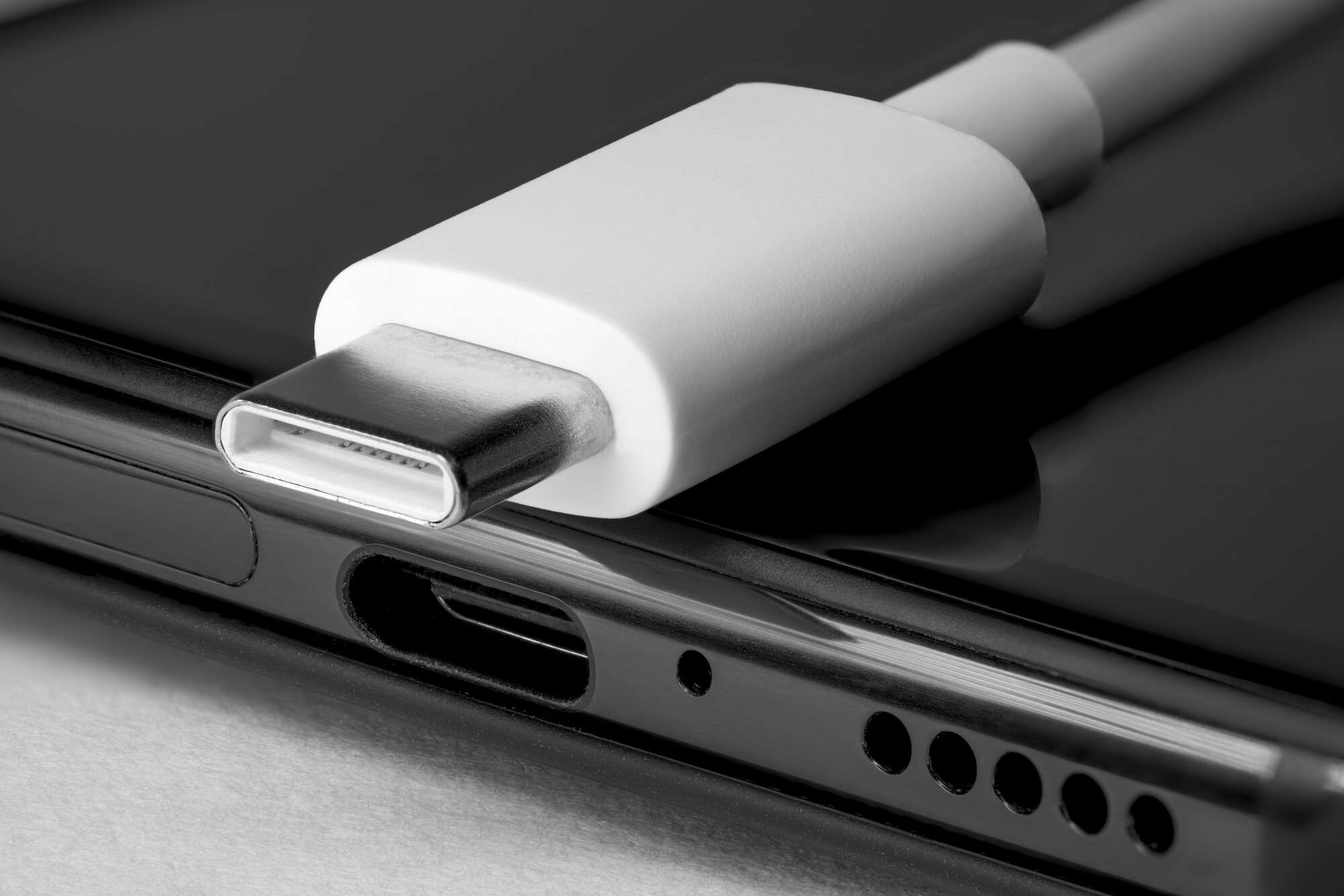What EU's type C charger rule means for Kenya – Business Daily
A type C charger. EU regulations will see the USB-C cables, popularly known as type C, become the universal charger. PHOTO | SHUTTERSTOCK
Kenyan traders are staring at stockouts and deadstock in coming years, following the European Union (EU)’s move to standardise all smartphone chargers to USB-C cables.
The EU has set 2024 as the deadline for phasing out lightning cables. The regulations will see the USB-C cables, popularly known as type C, become the universal charger for mobile phones, tablets, keyboards, computer mice, smart watches, electronic toys, and low-powered laptops.
A huge number of phones and other gadgets manufactured and exported from the EU are Android devices that widely use lightning cables, meaning that in two years, sellers and consumers in Africa must comply.
Kenyan charger sellers are set to bear the biggest brunt because a majority of the chargers are manufactured in Europe, and they tend to hold onto stocks for many years. The shutdown of the manufacturing plants for the lightning cables is likely to translate to stock runouts in the domestic market.
Phone maker Apple has raised concerns over EU’s push for a common charger type, saying it might hurt innovation.
As the supremacy battle ensues between the type C and the lighting cable, competition from alternative technologies such as micro-USB has become more pronounced. Phone makers, however, say there is unlikely to be a disruption in terms of supply.
Electronics traders are also optimistic, adding that they are looking for measures that will cushion them from the losses caused by obsolete technology.
Charles Kimari, the director of internet and mobile experience at Samsung says he hopes the market dynamics will cancel themselves out in a cyclic fashion, with local retailers getting a window for business expansion.
“The elimination of the lightning chargers will not be a one-off affair. It will be a phased, gradual process. This will give time to local dealers to get innovative and getting alternative sources of supply. I don’t foresee any disruption of the supply chain links,” says Mr Kimari.
Kevin Muhoro, a charger seller in Nairobi city centre expresses optimism that by the time the rule is effected and the spillover effects get to Kenya, phone makers will have put their act together and phased out incompatible phones.
“By 2023, the common chargers will have started leaving the market. The type C charger is now the in thing because every device being manufactured now is being tailored for the type C charger. Therefore, even before the operationalisation of the law, market forces will have naturally pushed common chargers out,” says Mr Muhoro.
But Simon Kimani who operates a phones repair outlet in Nairobi’s CBD is of a different view. He says the only way Kenya can achieve sustainability in the middle of the imminent crisis is to support innovators who will take up the manufacturing of lightning cords.
“Most type C compatible phones are costly and not many Kenyans can be able to acquire them in the proposed shift. This then calls for us to take advantage and come up with our domestic solutions so that by the time the effects are felt here, we will be better placed to move on without much disruption,” says Mr Kimani.
A majority of Kenyan users are unlikely to dispose of their old non-compatible type C charger smartphones in two years, meaning that if the charges get spoilt or lost, it will be hard to power the phones.
The only other alternative, Mr Kimani explains, would be for phone manufacturing economies to adopt a model where they will make cheaper type-C compatible phones.
“Economies like China have got some of the most shrewd business operators who smell opportunities from afar. It would be prudent if they took up this window of opportunity and started manufacturing normal-cost phones that will be compatible with the type C cable,” adds Mr Kimani.
Among the headaches that Kenya would have to face following the ban will be the disposal formula for the lightning chargers.
Ordinarily, when charging cables are no longer in use, they give rise to far-reaching environmental consequences through the generation of electronic waste.
Estimations show that chargers for portable devices generate up to 39,000 tonnes of e-waste when improperly disposed of or not constructively repurposed.
There is also innovation challenges. Mutua Mutuku, data compliance and intellectual property expert says that the EU policy is unlikely to give rise to any positive socio-economic outcome due to the inhibition of innovation.
“It’s difficult to see how such a regulation would assist consumers when it forbids certain concepts. Given the importance of consumer advantages in policy evaluation, the project is unlikely to result in a favourable socio-economic outcome,” says Mr Mutuku.
“Even well-intentioned policies carry the danger of having severe unintended consequences owing to inhibited or delayed innovation.”
→[email protected]











